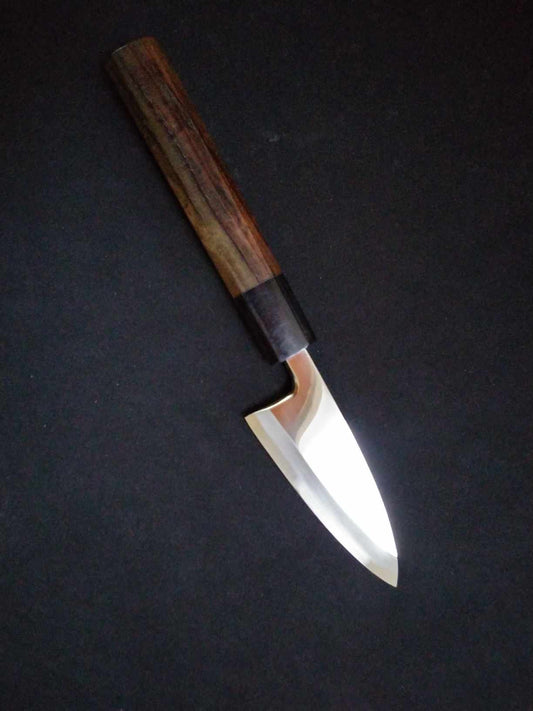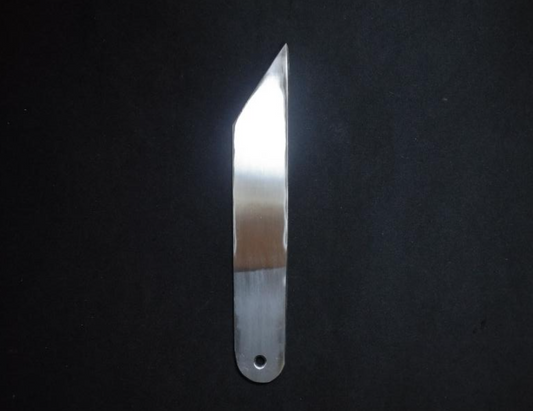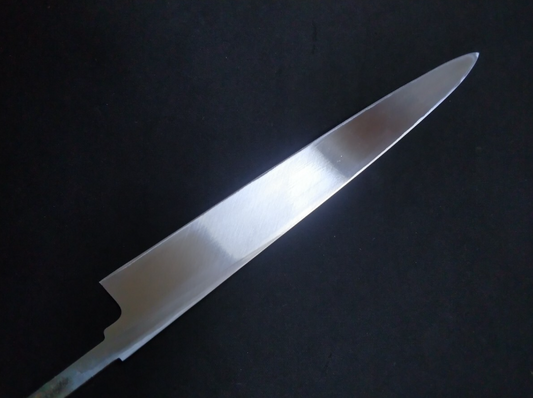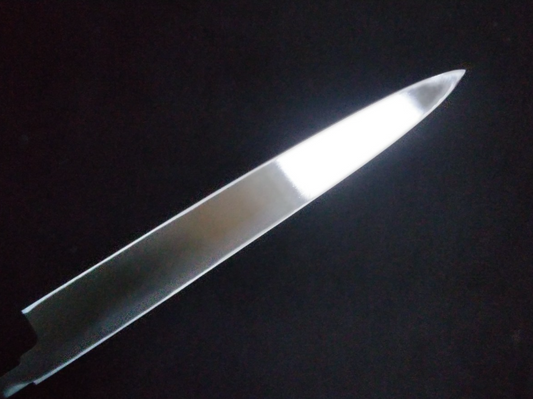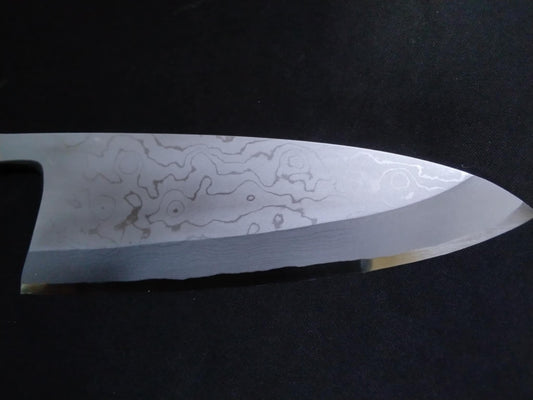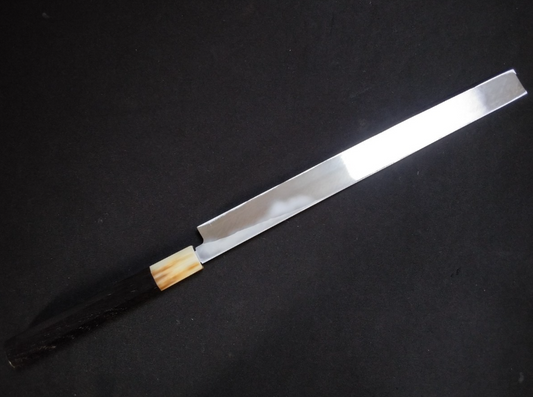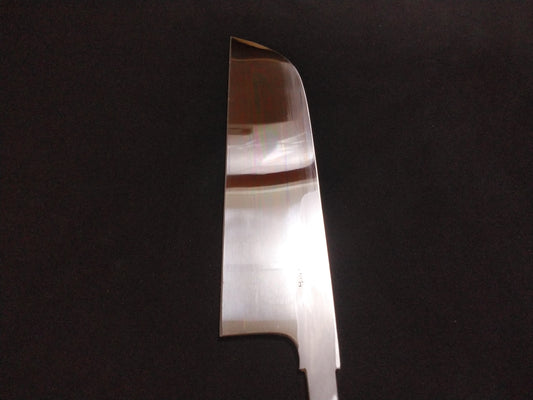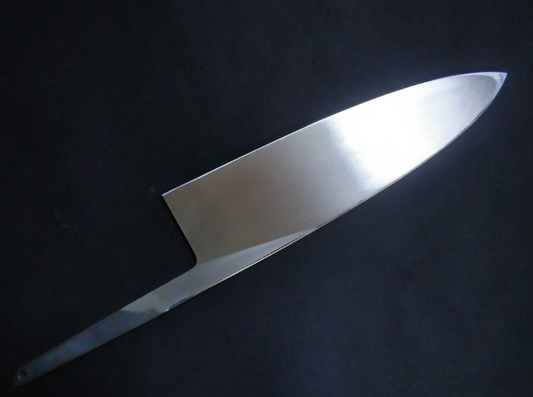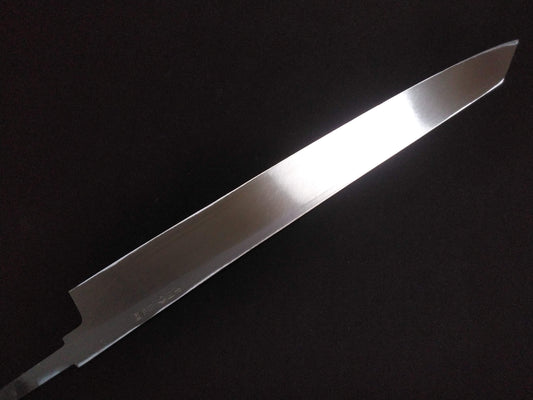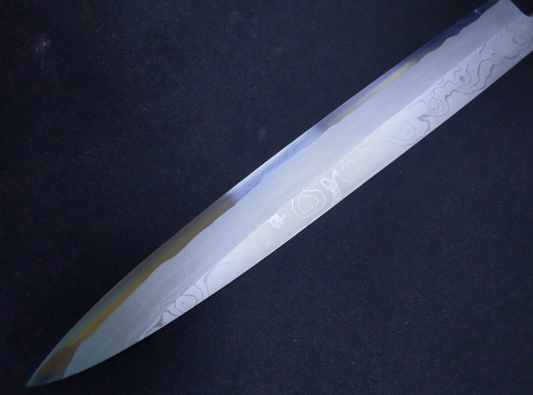
White Steel #2
-
Pure steel, pure skill.
White Steel #2 isn’t just a material—it’s a bridge between centuries of Japanese craftsmanship and the chef’s hand today. Discover why this high-purity carbon steel is trusted by masters, loved by beginners, and celebrated for the way it sharpens, slices, and lives in harmony with its owner.
-
White Steel #2 Japanese Knife Collection
-
White Steel #2 KoDeba(Small Deba) 90mm-Mirror Polished(one side)
Regular price $220.00 CADRegular priceUnit price / per$0.00 CADSale price $220.00 CAD -
White Steel #2 Eel Knife 186mm
Regular price $250.00 CADRegular priceUnit price / per$0.00 CADSale price $250.00 CAD -

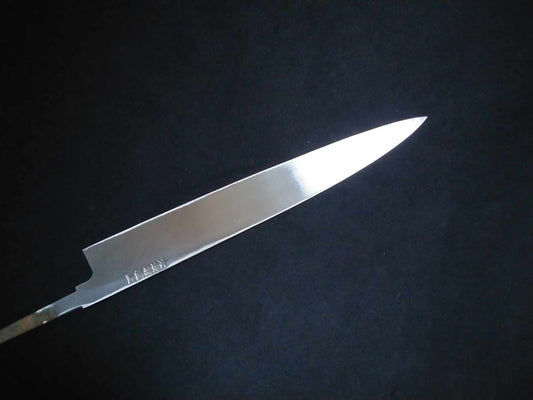 Sold out
Sold outWhite Steel #2 Yanagiba 210mm
Regular price $260.00 CADRegular priceUnit price / per$0.00 CADSale price $260.00 CADSold out -
White Steel #2 Yanagiba 240mm-Kido Finishing
Regular price $270.00 CADRegular priceUnit price / per -
White Steel #2 Yanagiba 270mm-Kido Finishing
Regular price $310.00 CADRegular priceUnit price / per -

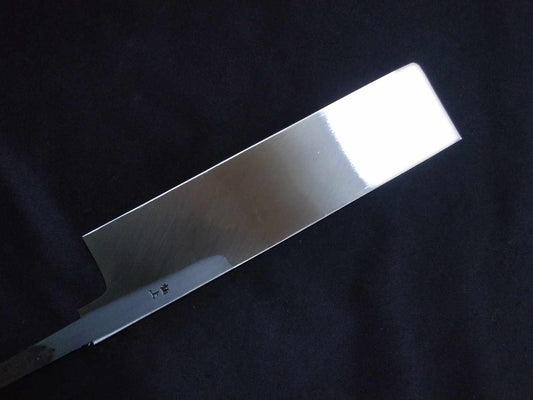 Sold out
Sold outWhite Steel #2 Usuba 210mm
Regular price $346.00 CADRegular priceUnit price / per$334.00 CADSale price $346.00 CADSold out -
White Steel #2 Damascus Deba 150mm-Mirror Polished Blur Finish
Regular price $346.00 CADRegular priceUnit price / per$0.00 CADSale price $346.00 CADSold out -
White Steel #2 Takohiki 270mm-Kido Finishing
Regular price $350.00 CADRegular priceUnit price / per -

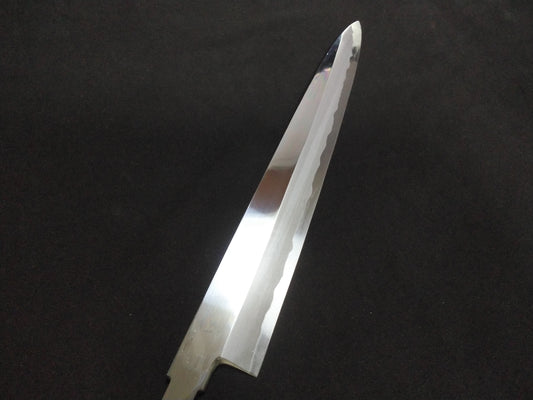 Sold out
Sold outWhite Steel #2 Yanagiba 330mm
Regular price $380.00 CADRegular priceUnit price / per$380.00 CADSale price $380.00 CADSold out -
White Steel #2 Yanagiba 330mm-Mirror Polished(both sides)
Regular price $387.00 CADRegular priceUnit price / per$0.00 CADSale price $387.00 CADSold out -
White Steel #2 Yanagiba 300mm-Mirror Polished(one side)
Regular price $434.00 CADRegular priceUnit price / per$0.00 CADSale price $434.00 CAD -
White Steel #2 Kamausuba 210mm-Mirror Polished(both sides)
Regular price $460.00 CADRegular priceUnit price / per$460.00 CADSale price $460.00 CADSold out -
White Steel #2 Damascus Deba 210mm-Mirror Polished Blur Finish
Regular price $460.00 CADRegular priceUnit price / per$0.00 CADSale price $460.00 CADSold out -
White Steel #2 Yanagiba (Kiritsuke) 300mm-Mirror Polished(one side)
Regular price $469.00 CADRegular priceUnit price / per$0.00 CADSale price $469.00 CAD -
White Steel #2 Yanagiba 330mm-Mirror Polished(one side)
Regular price $500.00 CADRegular priceUnit price / per$0.00 CADSale price $500.00 CAD -
Wihte Steel #2 Damascus Yanagiba 270mm- Mirror Polished Blur Finish
Regular price $508.00 CADRegular priceUnit price / per
KIREAJI's Three Promises to You
-

1. Forged in the Legacy of Sakai
From Sakai City—Japan’s renowned birthplace of professional kitchen knives—each blade is crafted by master artisans with over six centuries of tradition. Perfectly balanced, enduringly sharp, and exquisitely finished, every cut carries the soul of true craftsmanship.
-

2. Thoughtful Care for Everyday Use
Every knife includes a hand-fitted magnolia saya for safe storage. Upon request, we offer a complimentary Honbazuke final hand sharpening—giving you a precise, ready-to-use edge from day one.
-

3. A Partnership for a Lifetime
A KIREAJI knife is more than a tool—it is a lifelong companion. With our bespoke paid aftercare services, we preserve its edge and beauty, ensuring it remains as precise and dependable as the day it first met your hand.
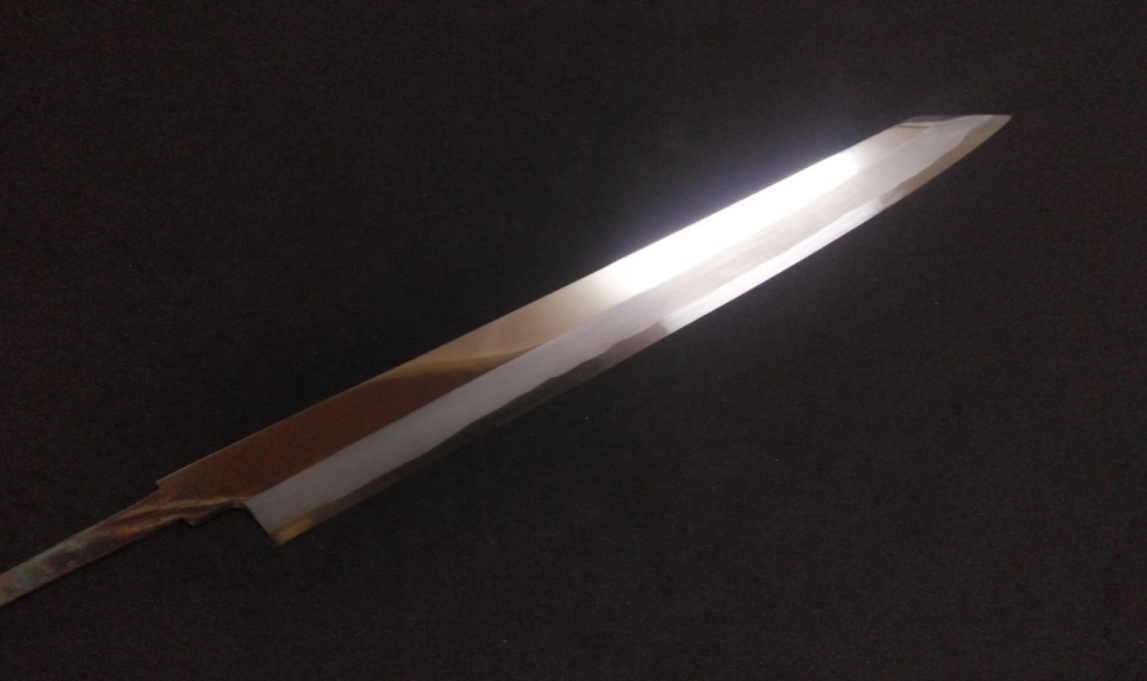
Why Many Product Photos Show Only the Blade
At KIREAJI, every knife is made to order in Sakai, Japan. Photos show the blade before the handle is attached, allowing artisans to perfect the balance and edge for your specific order. Your knife arrives fully finished — tailored just for you.

Global Delivery from Sakai
Across the world, discerning cooks seek authentic Japanese knives from Sakai — Japan’s legendary knife-making city with over 600 years of tradition.
At KIREAJI, we work alongside master artisans in Sakai to fulfill that desire, shipping genuine handcrafted knives directly from the workshop to kitchens worldwide.
White Steel #2: The Honest Beauty of Steel That Lives in the Hand of the Chef
-
-
To a chef, a knife is more than just a tool. It’s an extension of the hand, a brush that expresses one’s technique and philosophy. Among the many steels that form the heart of Japanese knives, White Steel #2 stands out as a material that has carried Japan’s forging tradition into the modern kitchen, and is still trusted by countless professionals today.
-

A Steel That’s Honest and Pure
White Steel #2 is a high-purity carbon steel. It contains no chromium or tungsten additives, relying only on the essential elements. Because of that, it is known for its "honesty" as a material. It responds faithfully to the intentions of the blacksmith who forges it and to the hands of the sharpener who maintains it. The chef’s skill appears directly on the edge of the blade — and this is what defines White Steel #2’s true value.
-
Welcome to the Culture of Sharpening
One of the main reasons why White Steel #2 is loved by chefs and culinary enthusiasts worldwide is its ease of sharpening. The feeling of the blade gliding smoothly over a whetstone is deeply satisfying — it feels as though you are breathing life back into the knife with your own hands. Sharpening is no longer a chore; it becomes a conversation with the knife itself. This is the depth of Japanese knife culture, and White Steel #2 embodies it in its purest form.
-

Trusted by Professionals, Ideal for Beginners
Though many associate “white steel” with expert-level tools, White Steel #2 is actually well-suited for beginners as well. It’s easy to work with, and because both blacksmiths and sharpeners are deeply familiar with it, quality and consistency are very high. With just basic daily maintenance, the blade retains its edge for a long time, offering exceptional cost performance.
In Japan, it is often the first steel young apprentices learn to forge and sharpen. In that sense, it represents both a foundation and a trusted entry point into the world of Japanese blades.
-
A Bridge Between Tradition and the Present
The history of White Steel #2 is closely tied to the evolution of modern Japanese blade-making. This pure, unadorned steel reflects a philosophy that stands in contrast to mass production: a devotion to careful, individual craftsmanship.
Choosing this material means more than just choosing good performance. It is a declaration of respect — for cooking as an act of care and for the tools that support it. It is a decision to grow alongside your knife.
-
White Steel #2 may not be flashy, but its quiet strength and sincerity are deeply reassuring. If you see your knife not just as a tool but as a partner in your craft, White Steel #2 may very well be the first blade you’ll want to keep by your side for a lifetime.
What Is White Steel #2?
-
— The Purity Behind the Sharpness and Ease of Sharpening —
Among traditional Japanese knife steels, White Steel #2 (Shirogami #2) holds a special place.
It is a high-purity carbon steel made primarily from iron and carbon, with impurities like phosphorus and sulfur reduced to an absolute minimum.Unlike many modern steels, White Steel #2 contains almost no alloying elements, such as chromium or molybdenum. Its composition is remarkably simple — and that simplicity is precisely what makes it so special.
-

Why Does “Purity” Matter?
The true beauty of White Steel #2 lies in its honesty as a material.
Because of its purity, it responds directly to the blacksmith's skill and heat treatment. There’s no place to hide mistakes — but when crafted well, the result is a blade with exceptional sharpness and outstanding performance.Compared to White Steel #1, White Steel #2 has a slightly lower carbon content, which gives it a more balanced combination of hardness and sharpenability.
For chefs who sharpen their knives regularly, this balance is a major advantage — it allows for easier maintenance without sacrificing cutting performance. -
Backed by Technical Precision
White Steel #2 typically contains 1.05% to 1.15% carbon, along with trace amounts of silicon and manganese.
Impurities are kept to an absolute minimum, and the lack of excess elements allows the steel’s core strength to shine through.When properly forged and heat-treated, it produces a blade that is razor-sharp, durable, and pleasantly smooth to sharpen — a sensation that many professionals describe as deeply satisfying.
-
In Summary
White Steel #2 is a material where purity equals performance.
It’s a favorite among traditional Japanese blacksmiths for a reason: it allows the knife to reflect the artisan’s hand and the chef’s technique.If you’re looking for a steel that offers incredible sharpness, easy sharpening, and a direct connection between your skills and your tool, White Steel #2 is the one to know first.
Features of White Steel #2
-

Sufficiently Sharp Edge
White Steel #2 is a material with a high carbon content, making it extremely hard. When sharpened, it exhibits a sharp edge.
-

Not Highly Difficult to Sharpen
White Steel #2 is not as hard as blue steel, so it is not highly difficult to sharpen. It can be considered relatively easy to handle even for beginners.
-

Good Cost Performance
White Steel #2 is not as expensive as the top-grade White Steel #1, making it a good choice in terms of cost performance.
Recommended Users for White Steel #2
-

1. Chefs Seeking a Balance of Sharpness and Ease of Care
Offers a great mix of keen edge, quick sharpening, and manageable rust prevention — ideal for both professionals and serious home cooks.
-
2. Learners of Japanese Carbon Steel
Perfect for those exploring traditional Japanese blades for the first time, with clear sharpening feedback and a classic cutting feel.
-
3. Daily Prep Cooks Who Value Quick Touch-Ups
Frequent sharpening cycles are fast and easy, keeping pace with the demands of busy kitchens without slowing workflow.
White Steel #2: The Purest Connection Between Maker and Cook
-

White Steel #2 offers a uniquely direct connection to the maker’s craft.
With its pure composition and smooth sharpening feel, it invites you into a deeper dialogue with your knife—making it an ideal choice for both beginners and seasoned professionals seeking authenticity. -
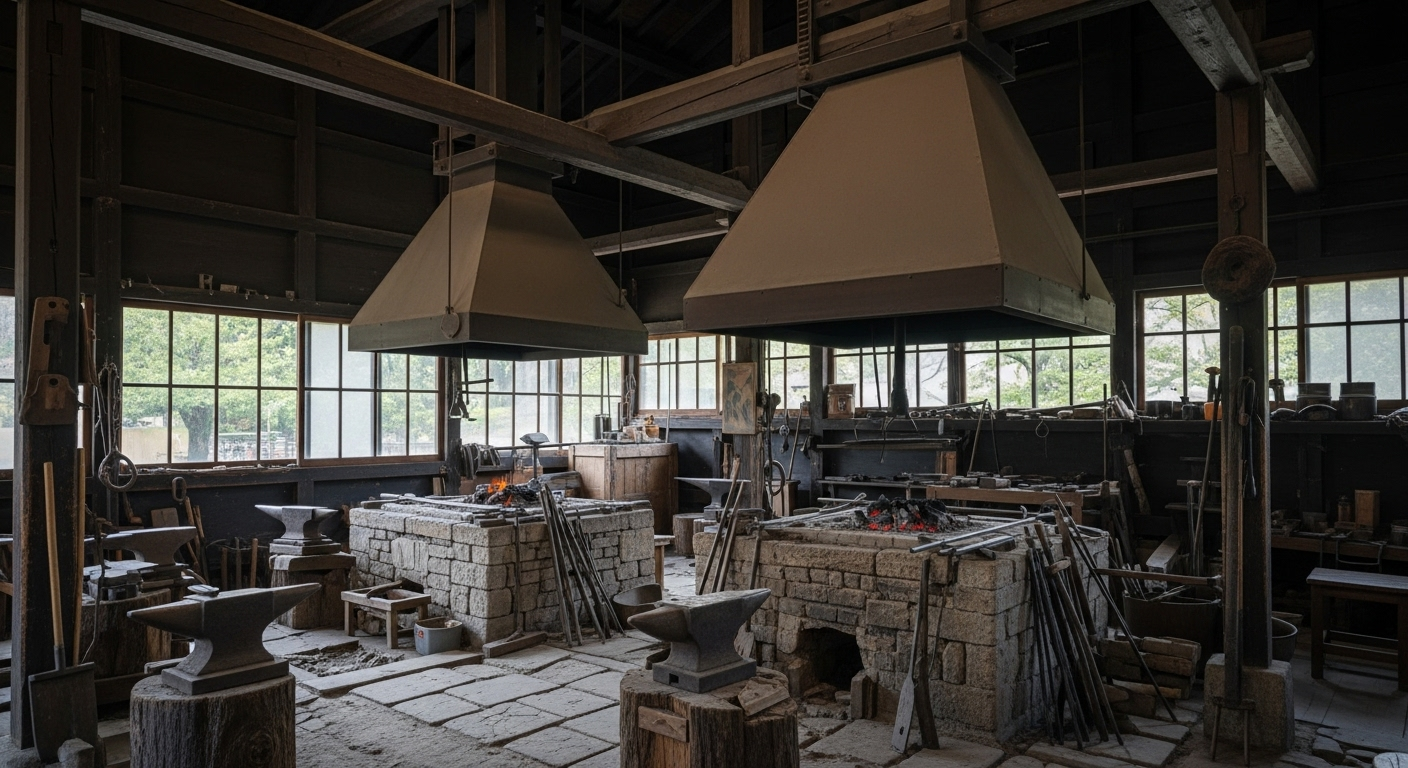
FAQ About White Steel #2
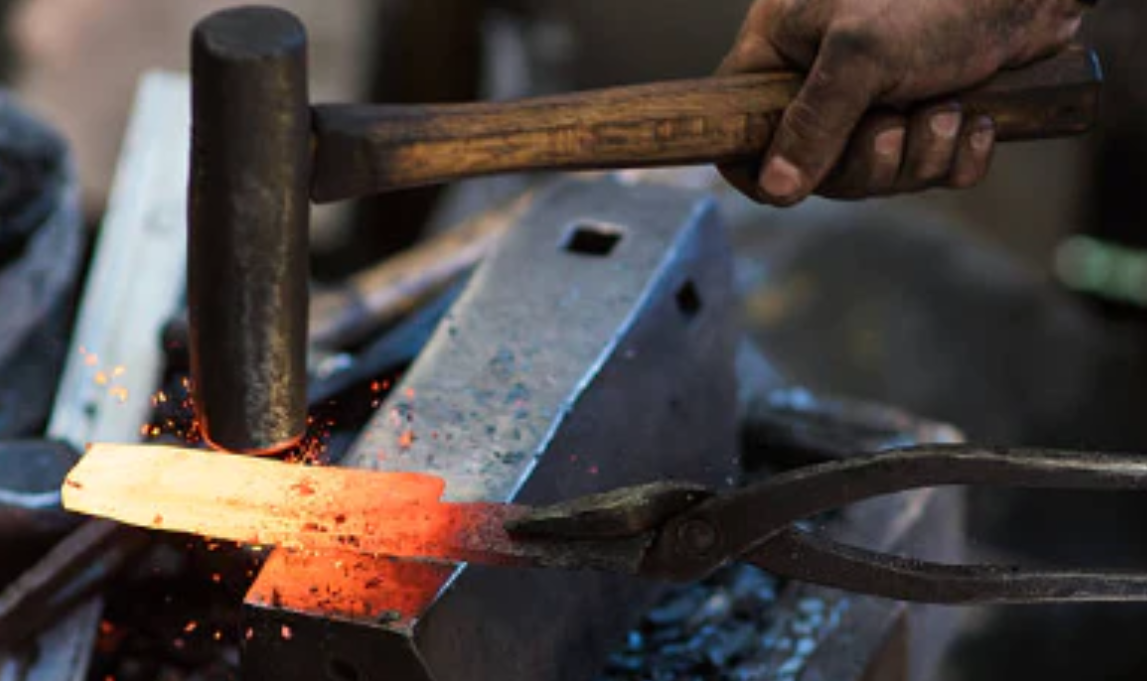
Q1. What is White Steel #2?
White Steel #2 (Shirogami No.2) is a high-purity carbon steel made with only iron and carbon (approx. 1.05–1.15%). It contains virtually no alloying elements, giving it an exceptionally clean composition. Known for its razor-sharp edge, ease of sharpening, and honest feedback on the whetstone, it has been trusted by Japanese craftsmen for generations. Simple in composition, yet profound in performance, White Steel #2 is considered one of the most iconic steels in Japanese knife-making.
Q2. How is it different from White Steel #1?
Both White Steel #1 and #2 are ultra-pure carbon steels, but the difference lies in carbon content. White Steel #1 has slightly more carbon, making it harder and capable of holding an edge longer, but also more brittle and difficult to sharpen. White Steel #2, by contrast, strikes a balance—it is sharp, easier to sharpen, and a little more forgiving in daily use. This balance makes it the most popular choice among professionals and serious enthusiasts alike.
Q3. Is it better than stainless steel?
It depends on your priorities. If you value cutting feel, edge sharpness, and the joy of sharpening, White Steel #2 is unmatched. Stainless steels, on the other hand, provide convenience and rust resistance, but often lack the tactile feedback and ultimate sharpness that carbon steels offer. For those willing to maintain it, White Steel #2 offers a deeper connection and a more rewarding experience.
Q4. Does it rust?
Yes. White Steel #2 is not stainless, and its lack of chromium makes it more reactive to water, salt, and acidic foods. However, rust can be prevented with simple care: always dry the knife completely after use, avoid prolonged contact with acidic or salty ingredients, and apply a thin coat of oil such as camellia oil for longer storage. With proper care, the steel develops a beautiful patina and can last for decades.
Q5. Is it good for beginners?
Yes. Many professional chefs and apprentices begin their journey with White Steel #2. It is easier to sharpen than harder steels, responds well to whetstone technique, and provides clear feedback that helps develop sharpening skills. Far from being just a beginner’s option, it is a steel that grows with you, rewarding dedication at every stage of your cooking journey.
Q6. How should I maintain it?
Wash and dry the knife immediately after each use, and sharpen it regularly with waterstones rather than waiting until it is dull. Avoid using it on bones, frozen foods, or hard surfaces to protect the edge. For long-term storage, apply a light coat of oil. A White Steel #2 knife is more than a tool—it is a teacher. Every moment spent maintaining it deepens your skill and strengthens your connection to the craft.

Comprehensive Guide to White Steel and Blue Steel
White Steel offers purity and razor-sharp edges, while Blue Steel adds toughness and edge retention. This guide highlights the key differences that define sharpness, durability, and performance in Japanese knives.

Comprehensive Guide to White Steel #2 and Blue Steel #2
White #2 vs. Blue #2: A deep dive into how subtle differences in carbon content transform sharpness, hardness, and sharpening feel.

Comprehensive Guide to White Steel #1 and White Steel #2
White #1 vs. White #2: Compare edge sharpness, ease of sharpening, and professional vs. daily kitchen performance.

Japanese Knife Materials
The steel behind a Japanese knife defines its sharpness, durability, and care. From traditional carbon steels like White #2 and Blue #2 to modern innovations such as Ginsan and ZDP189, each material offers its own balance of performance and maintenance. This guide explores how these choices shape the knives we use today.
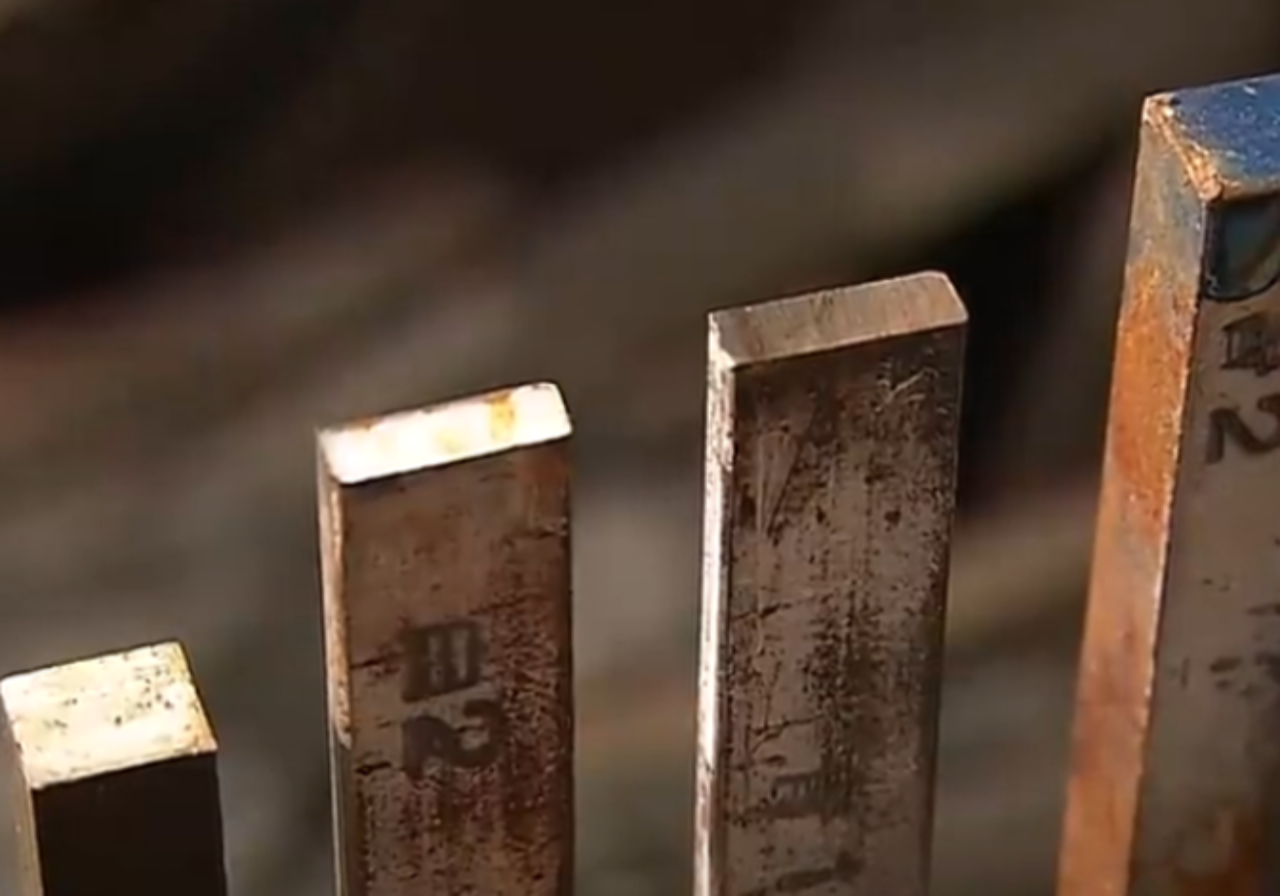
Yasuki Steel: The Heart of Japanese Knives
Yasuki Steel has long been the legendary core of Japanese knife-making. With the 2023 transition from Hitachi Metals to Proterial, its future is at a turning point. The continued yet uncertain production of White and Blue Steel—and the arrival of new stainless options—raises important questions for makers, users, and collectors alike. Understanding Yasuki Steel is more essential than ever to grasp the future of Japanese knives.
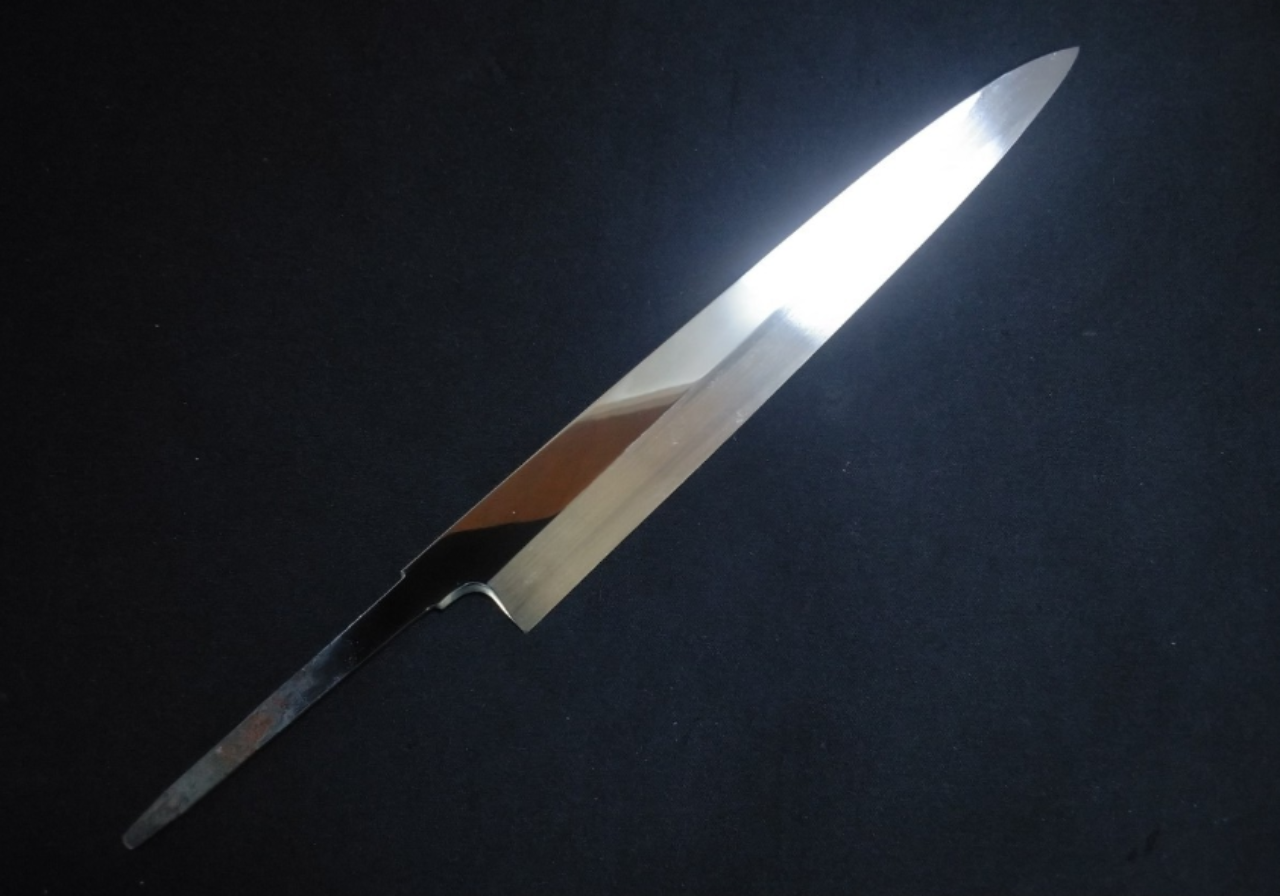
White Steel #2: A Timeless Classic in Japanese Knives
White Steel #2, also called White Paper #2, is prized for its purity, sharpness, and ease of sharpening. A staple of Japanese knife-making, it balances hardness with flexibility—earning the trust of both chefs and artisans. From beginners to experts, it delivers precision in every cut while carrying forward a legacy of craftsmanship.
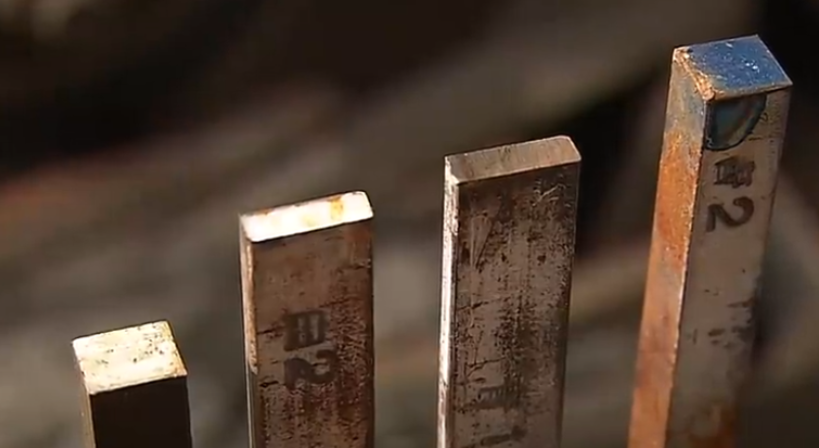
The Soul of Craftsmanship
-
White Steel #2: A Masterpiece of Craftsmanship — Why Now Is the Perfect Time to Own It
White Steel #2 represents the pinnacle of Japanese blade craftsmanship. Forged from nothing more than pure iron and carbon, it is celebrated for its ease of sharpening, enduring edge, and the ability to be revived again and again. Its simplicity is what makes it extraordinary—a material that reflects the skill and soul of the craftsman with absolute clarity.
-
Yet today, its future is uncertain. Changes in production methods and shifting market demands mean that true White Steel #2 knives may soon become increasingly rare. To own one now is not merely a matter of utility, but an act of preserving a living tradition—a heritage passed down through centuries of devotion.
-
A knife is never just a tool. It is the culmination of trust, pride, and centuries of refinement. To hold a White Steel #2 blade is to hold that heritage in your hands, to feel the unspoken bond between craftsman and chef with every cut, every sharpening.
-
Now is the time to experience the unmatched sharpness, purity, and spirit of White Steel #2. More than a knife, it is a legacy—one to be cherished, honored, and carried into the future.
How Japanese Knives Are Made: The Sakai Tradition
Video Provided: Japan Traditional Crafts Aoyama Square (YouTube)
-
Sakai Forged Blades — Six Centuries of Unrivaled Craftsmanship
Loved by chefs around the world and trusted by 98% of Japan’s top culinary professionals, Sakai knives are more than tools—they are the living legacy of over 600 years of master craftsmanship.
-
At KIREAJI, we work directly with the Shiroyama Knife Workshop in Sakai, Japan, ensuring every blade is hand-forged, finished to perfection, and shipped straight from the workshop to kitchens across the globe. No middlemen. No mass production. Only authentic, artisan-made knives, crafted to elevate your cooking for a lifetime.


